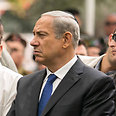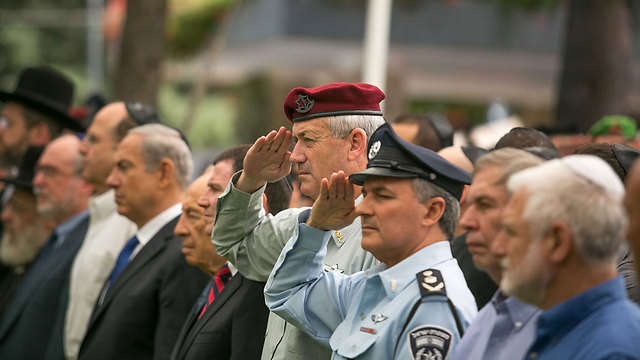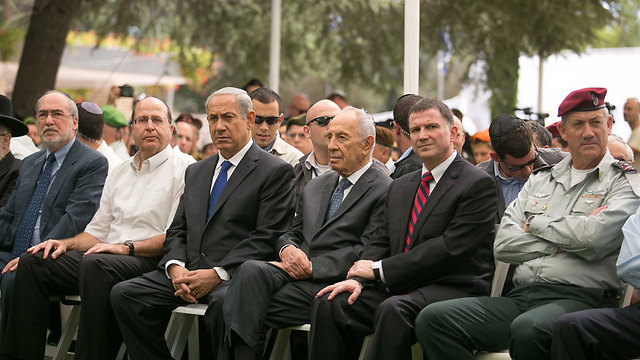
Netanyahu: Self defense is more important than ever
In state ceremony marking 40 years since Yom Kippur War, prime minister addresses US-Russia deal to eliminate Syria's chemical weapons, says 'actions, rather than words, will be brought to a test'
Addressing the agreement to eliminate chemical weapons in Syria, Netanyahu said, "The understandings between the United States and Russia will be tested with results on the ground – the complete destruction of all the chemical weapons stockpiles used by the Syrian regime against its citizens.
Related stories:
- Golda Meir protocols from Agranat Commission released
- 40 years after Yom Kippur War: The Egyptian perspective
- Netanyahu: Message to Syria will be received 'loudly' in Iran
"This test also applies to the international community's efforts to stop Iran's nuclear program. Here too, actions, rather than words, will be the deciding factor. In any case, Israel must be prepared to defend itself, by itself, against any threat and this ability and willingness is more important than ever."
President Shimon Peres opened his speech by saying, "The gates of heavens were not open that day. Our prayer was not answered. The war broke out. Israel had erred and was caught by surprise and its sons sacrificed their lives with tremendous courage and rescued it."
Peres further added, "President Sadat surprised us twice – once by going to war and again in coming to Jerusalem. The military surprise became a diplomatic surprise. Syria, Egypt's partner in the war, refused to be its partner in peace. It is being punished for this refusal to this day. Sadat brought peace for his nation. Assad brought destruction.
"His country is divided. Its people's blood is being spilled like water. The Syrian economy is breaking down as the war persists. He tried to build a nuclear option and failed. He prepared chemical weapons, used them, and had the Russians as well as the Americans pledging to destroy it. Assad has no choice but to keep this commitment. A military threat backing a disarmament agreement should serve as a lesson to Iran's leaders as well."
The Yom Kippur War broke out on October 6, 1973 and was the largest-scale war Israel has fought in terms of the scope of forces and fire involved. A total of 2,569 IDF soldiers were killed, some 7,500 were injured and 301 fell captive and were later returned.
A state commission of inquiry establishment after the war, the Agranant Comission, refrained from holding the top political echelon personally accountable but Prime Minister Golda Meir and Defense Minister Moshe Dayan resigned several months later. IDF chief of staff David Elazar was dismissed as well as other senior officers.
- Receive Ynetnews updates directly to your desktop












